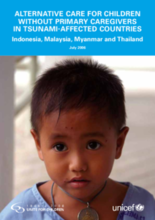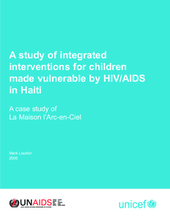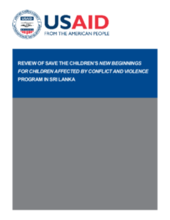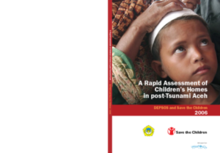Displaying 581 - 590 of 662
An assessment of alternative care responses for children without primary caregivers in tsunami-affected regions of Malaysia, Myanmar, Indonesia, and Thailand. Includes good practices, recommendations, and detailed country reports.
Detailed examination of debate over institutional and alternative care methods for children without parental care. Includes comprehensive framework for collective action.
Examines a community-based care program for children living with HIV in Haiti called Arc-en-Ciel. Includes an overview of services provided (residential care, home based care, and community mobilization) and lessons learned.
A website that contains statistical information on children in 27 countries across Central and Eastern Europe. The site contains relevant child protection indicators, including the number of children in institutional care.
Save the Children's "First Resort" series focuses on the needs and rights of children who, for a wide variety of reasons, are lacking adequate parental care. This third paper in the First Resort series presents practical examples of the range of options available to policy-makers, practitioners and others with responsibilities for the care and protection of children without adequate parental care.
A brief 2-page overview of what steps should be taken if and when a social worker or other community worker admits a child to a residential institution.
Detailed guidelines for the establishment of the Child Protection Service (CPS), designed to address the lack of regulations concerning standards in children’s institutions and the lack of departmental policy and procedures for assessing and assisting abused and at-risk children. Includes comprehensive set of CPS forms in 14 annexes.
An evaluation of a programme in Sri Lanka that aimed to resettle and reintegrate children affected by armed conflict, prevent and respond to child abuse, and develop community based alternatives to institutional care.
Examines institutional and family care in post-Tsunami Indonesia. Includes situational analysis, key issues, and recommendations.
A tool to encourage donors to fund community programs that keep children in family care, rather than simply funding orphanages. Describes the many strategies being used to invest in community-based care, and contains specific program examples.









